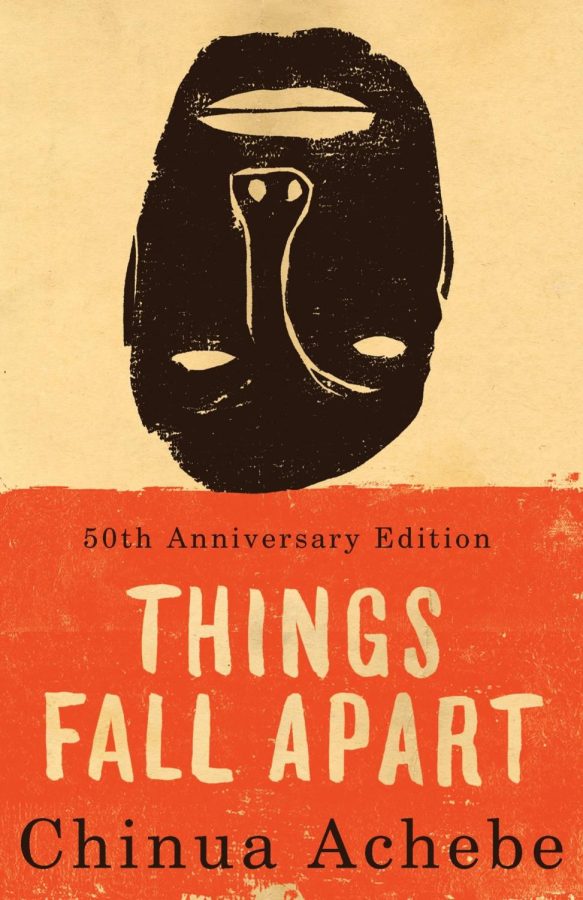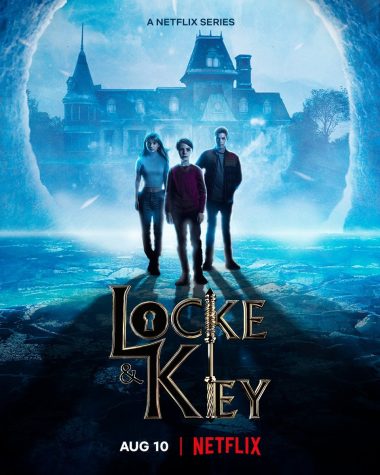Things Fall Apart: An Interview with Ms. Balliet
This past summer, the junior class read the 1958 novel Things Fall Apart in preparation for A.P. English Literature. Written by Chinua Achebe, Things Fall Apart is set in the late 19th century in the Nigerian clan of Umuofia. It follows Okonkwo, a well-respected leader in the clan, and depicts Okonkwo’s life in three parts — first, his history and his life; second, the introduction of Christianity and European colonists; and finally, the impact of Europeans on his community. Aaron Chao ‘24 and Connor Lee ‘24 recently met up with A.P. Lit teacher Ms. Balliet ‘03 to talk about portrayals of masculinity, what makes Achebe’s book so unique, and the overall significance of Things Fall Apart.
A&C: What was your knowledge of pre-colonial Africa before reading this book? How did your knowledge and perspective change after reading?
B: I knew about pre-colonial Africa distantly prior to reading the book. When I was a student at Prep, much of my knowledge came from my history classes, namely AP European History and AP US History. But pre-colonial Africa was still a far-off concept, and I wasn’t able to relate to it. Reading Things Fall Apart completely altered my understanding — the history came alive through the pages and it presented pre-colonial history from a different perspective, one that was much more “relatable”, in a sense of feeling the emotions from the characters.
A&C: What do you believe the significance of Okonkwo’s character is?
B: I often compare Okonkwo to Macbeth, which is something that will come up as the year progresses. But overall, Okonkwo exemplifies the characteristics of toxic masculinity. He is so obsessed with strength, power, and not giving in to his emotions that even when he has feelings, he won’t express it. In a sense, it makes him a lonely character. Ultimately it leads to his detriment; however, you feel a sense of sorrow at his tragic ending due to the little emotion that he conveys. In today’s world, he serves as an example of who not to be. Toxic masculinity often tells people to be big and strong, and to never dare cry. I have a son and I want to tell him the opposite. He doesn’t need to be strong all the time, and it’s not healthy for him to be so anyways.
A&C: What makes Things Fall Apart such an important and unique book?
B: Talking about sensitive issues can be uncomfortable, so having a book to comfortably introduce the topic of colonialism is very important. Literature that takes place in different times is more distant and easier to talk about, and Things Fall Apart does a fantastic job of bringing about that conversation. From a style standpoint, I really enjoy the way it blends African proverbs with classical English literature. It’s beautiful, and while it’s a new style to us, we can still comprehend and talk about it. It doesn’t hide away the African culture, and it doesn’t try to be a book for westerners. Lastly, I want to touch on the way it tells its story. There isn’t a direct plot line — it’s more made up of little episodes which is fascinating.
A&C: If you could choose three words to describe Things Fall Apart, what would they be and why?
B: Painful, illuminating, and necessary.
A&C: Off of that, can you clarify why it’s necessary to read this book?
B: Traditionally, most pre-colonial literature is eurocentric, but this book tells the story from an authentically African perspective. To me, this provides an essential sense of clarity and reality. More than that, it’s a book about community, and the loss of that community which isn’t talked about in history. It really displays how communities can be warped and changed very quickly and the emotion that loss carries.
Did you like the book and its ending? Why?
As a whole, I did like and appreciate the book, but the ending bummed me out. However, I think it wouldn’t have the same influence if the ending was different. The death of Okonko is a defining aspect of the book, and if it had a happy ending, I don’t believe it would make as much of an impact as it does now.
Lastly, what would you rate it out of 10?
9.5!

Grade: 11
Years on Staff: 1
Why are you writing for the Flintridge Press?
I believe that sharing topics regarding politics and the economy can...

Grade: 12
Years on Staff: 4
Why are you writing for the Flintridge Press?
Storytelling and conveying information are important parts of the human...











